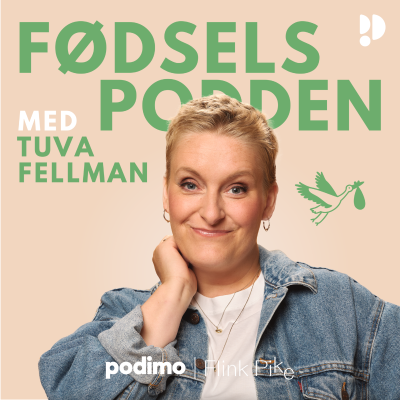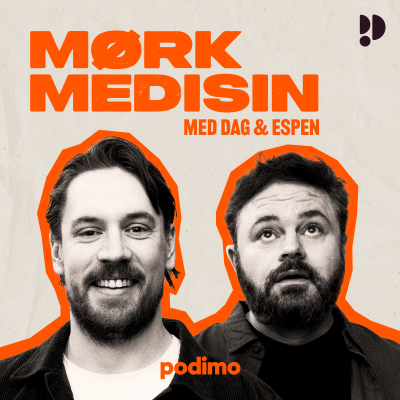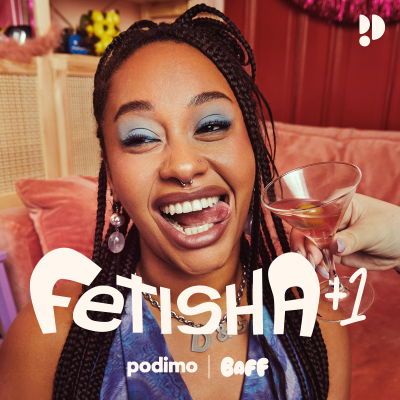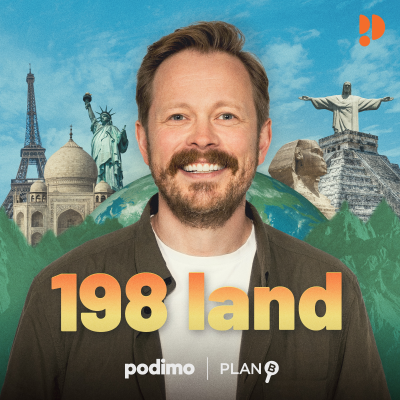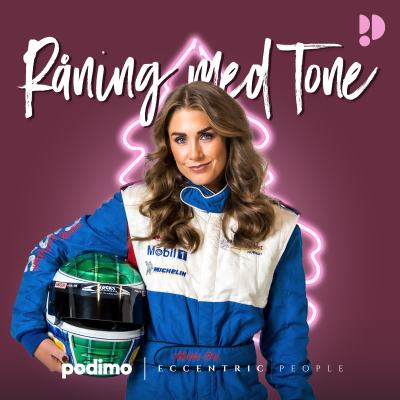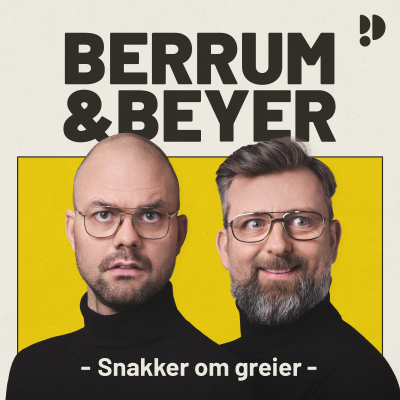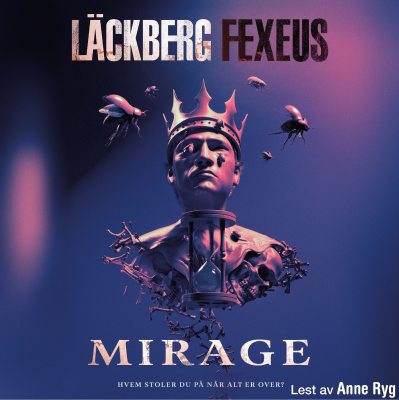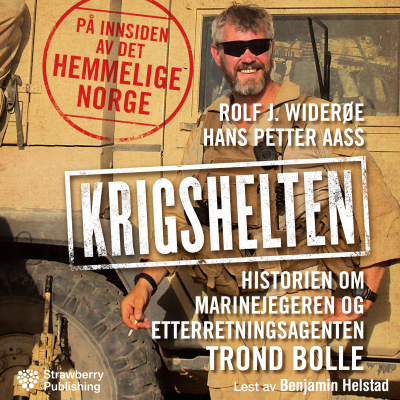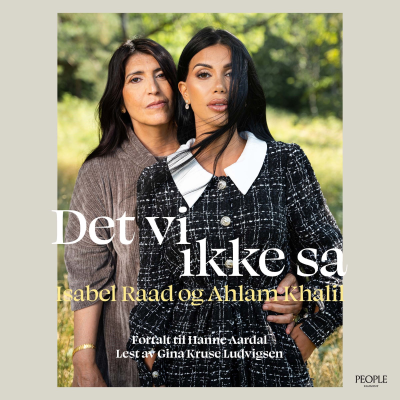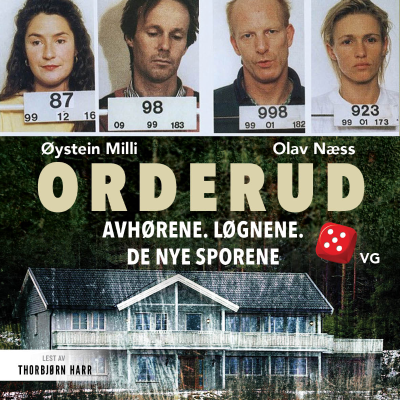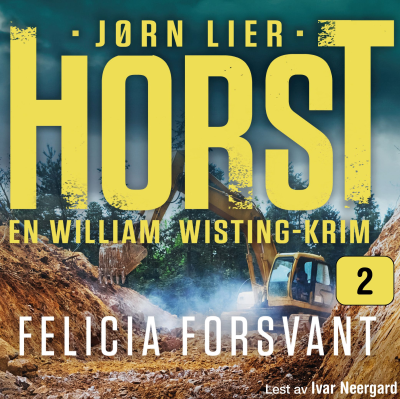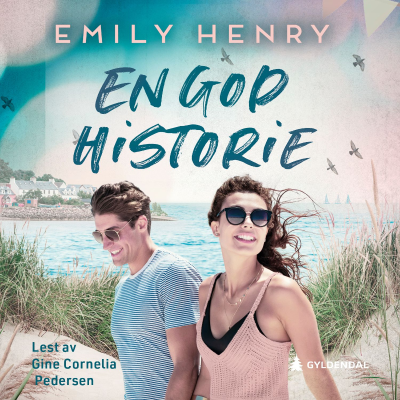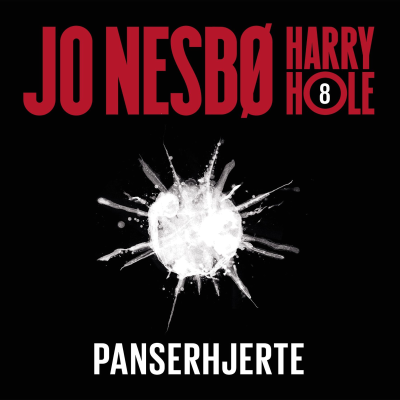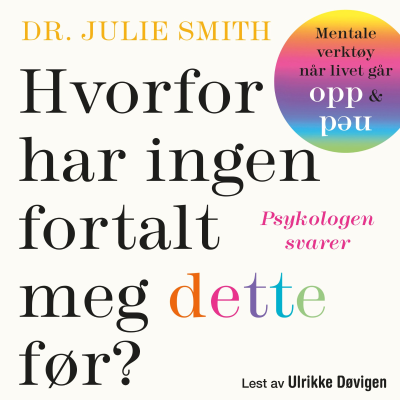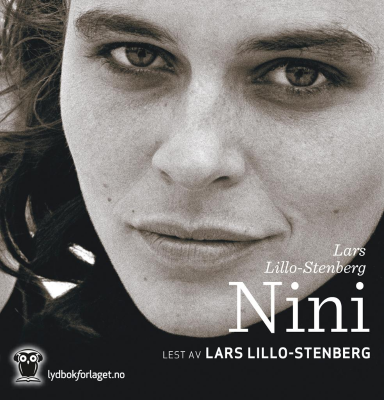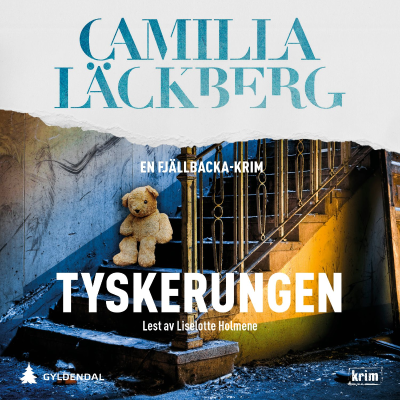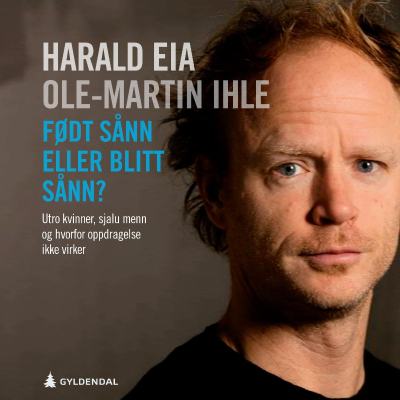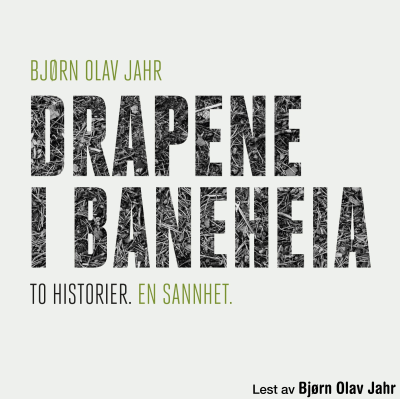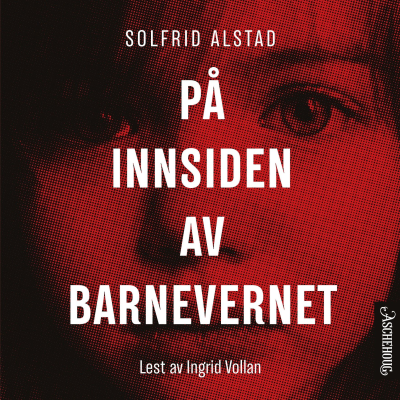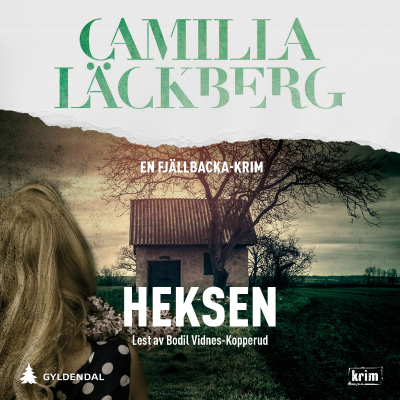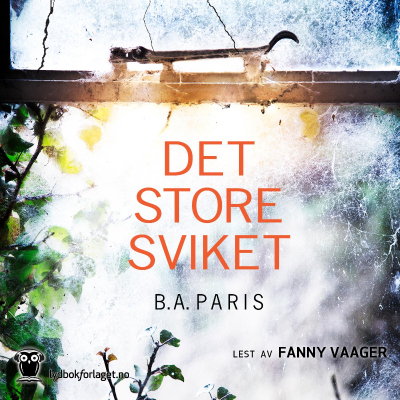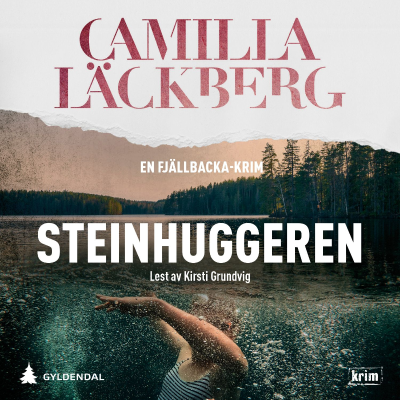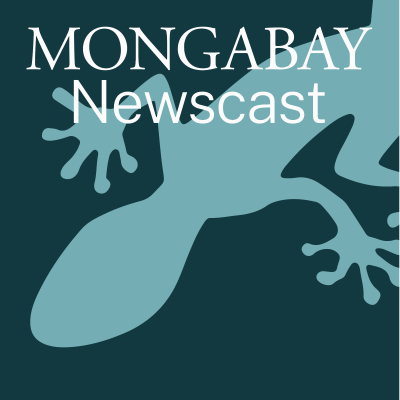
Mongabay Newscast
Podkast av Mongabay
Prøv gratis i 14 dager
99 kr / Måned etter prøveperioden.Avslutt når som helst.

Mer enn 1 million lyttere
Du vil elske Podimo, og du er ikke alene
Rated 4.7 in the App Store
Les mer Mongabay Newscast
News and inspiration from nature’s frontline, featuring inspiring guests and deeper analysis of the global environmental issues explored every day by the Mongabay.com team, from climate change to biodiversity, tropical ecology, wildlife, and more. The show airs every other week.
Alle episoder
320 EpisoderThe Nature Of [https://atmos.earth/podcast/] is a new podcast series from the nonprofit nature and culture magazine Atmos [https://atmos.earth/] that speaks with prominent figures in conservation and culture about how humans relate to the natural world, and how they might heal and strengthen that relationship. On this episode of Mongabay’s podcast, its host and Atmos editor-in-chief Willow Defebaugh details the series’ resulting revelations and why her publication covers the environment through the lens of community, identity, arts and culture. “From the beginning, we knew that we wanted to invite creative storytellers and artists into this conversation alongside scientists and journalists,” she explains. Storytelling and the arts, she says, house rarely tapped potential for helping people place themselves in the context of nature: “I think that what we need is to be changing people's hearts, not just minds.” Defebaugh also highlights how little individual action is actually needed to inspire greater collective action among the public, a fact that Harvard researchers revealed [https://www.hks.harvard.edu/faculty-research/policy-topics/advocacy-social-movements/paths-resistance-erica-chenoweths-research#:~:text=Similarly%2C%20the%20Defiance%20Campaign%20in,apart%20or%20opt%20for%20violence.]: only 3.5% of the public needs to be engaged in non-violent resistance for a movement to succeed. Subscribe to or follow the Mongabay Newscast wherever you listen to podcasts, from Apple [https://podcasts.apple.com/us/podcast/mongabay-newscast/id1155856616] to Spotify [https://open.spotify.com/show/66SkV6VkkoeiLFMT2cgh04], and you can also listen to all episodes here [https://www.mongabay.com/podcast/] on the Mongabay website. Please send questions, feedback or comments to podcast[at]mongabay[dot]com. Image Credit: Willow Defebaugh, co-founder and editor-in-chief of Atmos. Image courtesy of Camila Falquez/Atmos. --- Timecodes (00:00) The nature of relationships (11:24) Why science and empathy go together (16:23) On ‘spiritual ecology’ (20:43) Meditations on how humans see nature (23:41) Willow’s inspiration (26:10) Identity, community & nature (28:43) Art & culture (31:10) Biomimicry (36:38) Collective vs individual action (43:14) Speaking of solutions
Singapore has come a long way since the 1880s, when only roughly 7% of its native forests remained. Since the 1960s, when the city-state gained independence, it has implemented a number of urban regreening initiatives, and today, nearly 47% of the city is considered green space, providing numerous benefits to human residents and wildlife, like heat mitigation, freshwater conservation and cleanliness, carbon sequestration, coastal climate adaptation, biodiversity protection, and public enjoyment. To discuss his city’s regreening efforts — from the philosophical to the practical applications of methods and mindset shifts that have allowed the city to revitalize its urban wildlife interface — Anuj Jain, director and principal ecologist at the biomimicry consultancy bioSEA [https://biosea.sg/people/] and an adviser to BirdLife International, joins Mongabay’s latest podcast. “ Through the greening initiatives in Singapore, it's attracted a lot of species, many of which actually had declined before, some even had gone extinct, or locally extinct,” Jain says. Subscribe to or follow the Mongabay Newscast wherever you listen to podcasts, from Apple [https://podcasts.apple.com/us/podcast/mongabay-newscast/id1155856616] to Spotify [https://open.spotify.com/show/66SkV6VkkoeiLFMT2cgh04], and you can also listen to all episodes here [https://www.mongabay.com/podcast/] on the Mongabay website. Please send questions, feedback or comments to podcast[at]mongabay[dot]com. Image Credit: Supertree grove is part of the Gardens by the Bay (GBTB) urban park in Singapore, covering 105 hectares (260 acres). Image by Tien Tran (tientran0019) via Pixabay [https://pixabay.com/photos/supertree-grove-architecture-5541545/] (Pixabay Content License [https://pixabay.com/service/license-summary/]). -- Timecodes (00:00) Making the ‘city in a garden’ (10:01) What Singapore looks like today (13:51) The many benefits of urban greenery (20:53) Ecology and biomimicry design (24:30) Cleaner, more plentiful water (25:55) Urban regreening in the Middle East (29:16) To densify, or not to densify? (33:04) Where Singapore still struggles (36:33) Living more harmoniously with wildlife
Narratives help shape our society, culture and environment, entrenching beliefs that can help — or harm — our planet and human rights. Tsering Yangzom Lama [https://tseringlama.com/], story manager at Greenpeace International [https://www.greenpeace.org/international/], joins Mongabay's podcast to explain how dominant narratives — stories shaped by existing power structures and institutions — often undergird destructive industries and favor the powerful and the wealthy, and to discuss what people can do to counter such narratives. In this interview, she expands upon thoughts shared in the essay “How to Reject Dominant Narratives,” from the new book Tools to Save Our Home Planet [https://www.patagonia.com/product/tools-to-save-our-home-planet-a-changemakers-guidebook/BK925.html], published by Patagonia Books [https://www.patagonia.com/shop/books]. "A dominant narrative in reality would be anything that supports the status quo … what we have right now is a system in which we're trashing the world in which a small minority is profiting off of that destruction, and in which the vast majority of humanity does not have the basic necessities for a dignified human existence," she says. Subscribe to or follow the Mongabay Newscast wherever you listen to podcasts, from Apple [https://podcasts.apple.com/us/podcast/mongabay-newscast/id1155856616] to Spotify [https://open.spotify.com/show/66SkV6VkkoeiLFMT2cgh04], and you can also listen to all episodes here [https://www.mongabay.com/podcast/] on the Mongabay website. Please send questions, feedback or comments to podcast[at]mongabay[dot]com. Image Credit: Emergent tree in the Amazon Rainforest, Ecuador. Image by Rhett A. Butler/Mongabay. --- Timecodes (00:00) What is a dominant narrative? (08:04) Understand how they work (12:56) Countering the narrative (17:56) Making a more compelling appeal (20:31) The real goal is to change our conditions (23:32) When movements get co-opted (26:20) Conversation is key (28:49) Creating a narrative where none exists
Jean-Gaël "JG" Collomb [https://wildnet.org/about/team/] says community-based conservation [https://news.mongabay.com/list/community-based-conservation/] organizations know best how to tackle the complex conservation challenges unique to their ecosystems. However, they’re also among the most underserved in terms of funding of all stripes. On this week's episode of Mongabay's podcast, Collomb explains how his nonprofit, Wildlife Conservation Network [https://wildnet.org/] (WCN), is working to change that. When it comes to funding conservation," it's really difficult to know who to give your money to besides a handful of organizations that a lot of people are familiar with," Collomb says. WCN facilitates partnerships between community-based conservation groups, primarily in Global South nations with funders, in what has previously been described as “‘venture capital for conservation,” or as Collomb says, “people invest in people.” They are “the first actors,” he says. “We're huge fans of being able to encourage people to give unrestricted [funding] … those organizations who are based on the ground in the field know best how to use that money.” Subscribe to or follow the Mongabay Newscast wherever you listen to podcasts, from Apple [https://podcasts.apple.com/us/podcast/mongabay-newscast/id1155856616] to Spotify [https://open.spotify.com/show/66SkV6VkkoeiLFMT2cgh04], and you can also listen to all episodes here [https://www.mongabay.com/podcast/] on the Mongabay website. Please send questions, feedback or comments to podcast[at]mongabay[dot]com. Banner image: Beach on Mioskon Island in Raja Ampat. Photo by Rhett Bulter/Mongabay. ------ Timecodes (00:00) Why community-based conservation? (09:54) How WCN works (14:10) The importance of unrestricted funding (16:48) Transparency & ethics in philanthropy (19:59) 30x30 and Indigenous sovereignty (27:08) Scientific advancements (31:16) Either/or (35:33) USAID funding cuts (40:29) Connecting with WCN
This week on Mongabay's podcast, celebrated author and repeat Nobel Prize in Literature candidate Robert Macfarlane discusses his fascinating new book, Is a River Alive? [https://www.penguin.co.uk/books/455147/is-a-river-alive-by-macfarlane-robert/9780241624814], which both asks and provides answers to this compelling question, in his signature flowing prose. Its absorbing narrative takes the reader to the frontlines of some of Earth's most embattled waterways, from northern Ecuador to southern India and northeastern Quebec, where he explores what makes a river more than just a body of water, but rather a living organism upon which many humans and myriad species are irrevocably dependent — a fact that is often forgotten. Regardless of whether humans see rivers as useful resources or living beings, Macfarlane says their great ability to rebound from degradation is demonstrable and is something to strive for. " When I think of how we have to imagine rivers otherwise, away from the pure resource model, I recognize that we can reverse the direction of 'shifting baseline’ syndrome. We can make it ‘lifting baseline’ syndrome. We can make our rivers touchable, then swimmable, then drinkable again. Drinkable rivers. Imagine that!" Subscribe to or follow the Mongabay Newscast wherever you listen to podcasts, from Apple [https://podcasts.apple.com/us/podcast/mongabay-newscast/id1155856616] to Spotify [https://open.spotify.com/show/66SkV6VkkoeiLFMT2cgh04], and you can also listen to all episodes here [https://www.mongabay.com/podcast/] on the Mongabay website. Please send questions, feedback or comments to podcast[at]mongabay[dot]com. Banner image: The author Robert Macfarlane. Photo by Bryan Appleyard. Courtesy of Robert Macfarlane. -------- Timecodes (00:00) The liquid asset story (05:42) The beginning of the ‘hydrocene’ (12:49) Is a river alive? (20:01) ‘Rights of nature’ (30:02) Landmarks of hope & looming threats (35:41) ‘Slow violence’ (39:43) ‘A gathering that seeks the sea’ (45:13) Public waterways under private ownership (48:59) How the Cuyahoga River caught fire (53:58) Collective health over private wealth

Rated 4.7 in the App Store
Prøv gratis i 14 dager
99 kr / Måned etter prøveperioden.Avslutt når som helst.
Eksklusive podkaster
Uten reklame
Gratis podkaster
Lydbøker
20 timer i måneden
